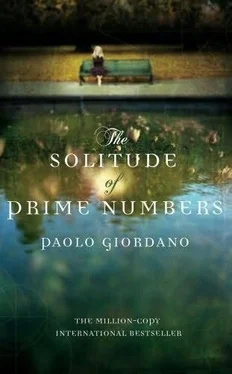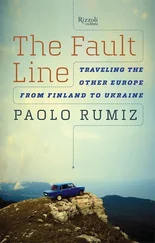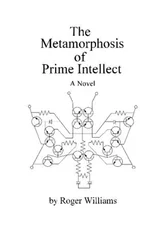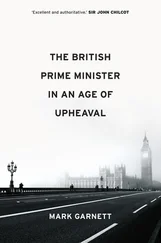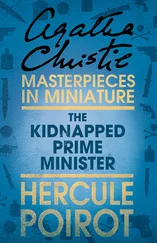Mattia picked up the first page, the one with the two numbers written in the middle, and felt like an idiot. He tore it in half and then in half again, until the edges were firm enough to pass like a blade beneath the nail of the ring finger of his left hand.
During his four years of university, mathematics had led him into the most remote and fascinating corners of human thought. With meticulous ritualism Mattia copied out the proofs of all the theorems he encountered in his studies. Even on summer afternoons he kept the blinds lowered and worked in artificial light. He removed from his desk everything that might distract his gaze, so as to feel truly alone with the page. He wrote without stopping. If he found himself hesitating too long over a passage or made a mistake when aligning an expression after the equals sign, he shoved the paper to the floor and started all over. When he got to the end of those pages stuffed with symbols, letters, and numbers, he wrote "QED," and for a moment he felt he had put a small piece of the world in order. Then he leaned against the back of the chair and wove his hands together, without letting them rub.
He slowly lost contact with the page. The symbols, which only a moment before flowed from the movement of his wrist, now seemed distant to him, frozen in a place that denied him access. His head, immersed in the darkness of the room, began to fill with dark, disorderly thoughts and Mattia would usually choose a book, open it at random, and begin studying again.
Complex analysis, projective geometry, and tensor calculus had not managed to diminish his initial passion for numbers. Mattia liked to count, starting from 1 and proceeding through complicated progressions, which he often invented on the spur of the moment. He allowed himself to be led by numbers and he seemed to know each one of them. And so, when it came time to choose his thesis topic, he went with no doubts to the office of Professor Niccoli, professor of discrete calculus, with whom he had never even sat an exam and about whom he knew nothing other than his name.
Francesco Niccoli's office was on the fourth floor of the nineteenth-century building that housed the mathematics department. It was a small room, tidy and odorless, dominated by the color white-the walls, shelves, plastic desk, even the cumbersome computer on top of it, were white. Mattia drummed softly on the door and from inside Niccoli wasn't sure if the knocking was for him or for the office next door. He said come in, hoping he had not made a fool of himself.
Mattia opened the door and stepped into the office.
"Hello," he said.
"Hello," replied Niccoli.
Mattia's eye caught sight of a photograph hanging behind the professor, which showed him, much younger and beardless, holding a silver plate and shaking hands with an important-looking stranger. Mattia narrowed his eyes, but couldn't read what was written on the plate.
"Well, then?" Niccoli urged, studying him with a frown.
"I'd like to write a dissertation on the zeros of the Riemann zeta function," said Mattia, staring at the professor's right shoulder, where a dusting of dandruff looked like a little starry sky.
Niccoli made a face, an ironic smile.
"Excuse me, but who are you?" he asked without concealing his disdain and locking his hands behind his head as if wanting to enjoy a moment of fun.
"My name is Mattia Balossino. I've finished my exams and I'd like to graduate within the year."
"Have you got your record book with you?"
Mattia nodded. He slid his backpack off, crouched on the floor, and rummaged around in it. Niccoli stretched out his hand to take the book, but Mattia preferred to set it on the edge of the desk.
For some months the professor had been obliged to hold objects at a distance to get them properly into focus. He quickly ran his eyes over the sequence of high grades. Not one flub, not one hesitation, not one try that had gone wrong, perhaps on account of a love story that had ended badly.
He closed the book and looked more carefully at Mattia. He was dressed anonymously and had the posture of someone who doesn't know how to occupy the space of his own body. The professor thought he was another of those who do well in their studies because they are unable to make much headway in life. The ones who, as soon as they find themselves outside the well-trodden paths of the university, always reveal themselves to be good for nothing.
"Don't you think I should be the one to suggest a topic for you?" he asked, speaking slowly.
Mattia shrugged. His black eyes moved right to left, following the edge of the desk.
"I'm interested in prime numbers. I want to work on the Riemann zeta function," he replied.
Niccoli sighed. Then he got up and walked over to the white bookshelf. As he ran his index finger along the spines of the books he snorted rhythmically. He pulled out some typed pages stapled in one corner.
"Fine, fine," he said, handing them to Mattia. "You can come back when you've performed the calculations in this article. All of them."
Mattia took the stack of pages and, without reading the title, slipped it into his backpack, which leaned against his leg, open and slack. He mumbled a thank-you and left the office, pulling the door shut behind him.
Niccoli went and sat back down in his chair and thought about how over dinner he would complain to his wife about this new and unexpected annoyance.
Alice's father had taken this photography business as the whim of a bored little girl. Nonetheless, for his daughter's twenty-third birthday, he gave her a Canon SLR, with case and tripod, and she had thanked him with a beautiful smile, as impossible to grasp as a gust of icy wind. He had also paid for her to take evening classes, which lasted six months, and Alice hadn't missed a single lesson. The agreement was clear if implicit: university came before everything else.
Then, in a precise instant, like the line separating light and shade, Fernanda's illness had gotten worse, dragging all three of them into an increasingly tight spiral of new tasks, drawing them toward an inevitable cycle of apathy and mutual indifference. Alice hadn't set foot in the university again and her father pretended not to notice. A feeling of remorse, the origins of which belonged to another time, kept him from imposing his will on his daughter and almost kept him from talking to her at all. Sometimes he thought it wouldn't take much, all he would have to do was go into her room one evening and tell her… Tell her what? His wife was disappearing from life like a wet mark drying on a shirt and, with her, the thread that still connected him to his daughter was slackening-it was already scraping the ground-leaving her free to decide for herself.
With photography Alice liked the actions more than the results. She liked opening the back of the camera and unrolling the new film a couple of inches, just enough to catch it in the runner, and thinking that this empty film would soon become something and not knowing what, taking the first few snaps into the void, aiming, focusing, checking her balance, deciding whether to include or exclude pieces of reality as she saw fit, enlarging, distorting.
Every time she heard the click of the shutter, followed by that faint rustle, she remembered when she used to catch grasshoppers in the garden of their house in the mountains when she was a little girl, trapping them between her cupped hands. She thought that it was the same with photographs, only now she seized time and fixed it on celluloid, capturing it halfway through its jump toward the next moment.
During the course she had been taught that the strap of the camera is to be wrapped around the wrist twice. That way, if someone tries to steal it they're forced to tear your whole arm off along with it. Alice ran no such risk in the corridor of Our Lady's Hospital, where her mother was being cared for, but she was used to carrying her Canon like that anyway.
Читать дальше
